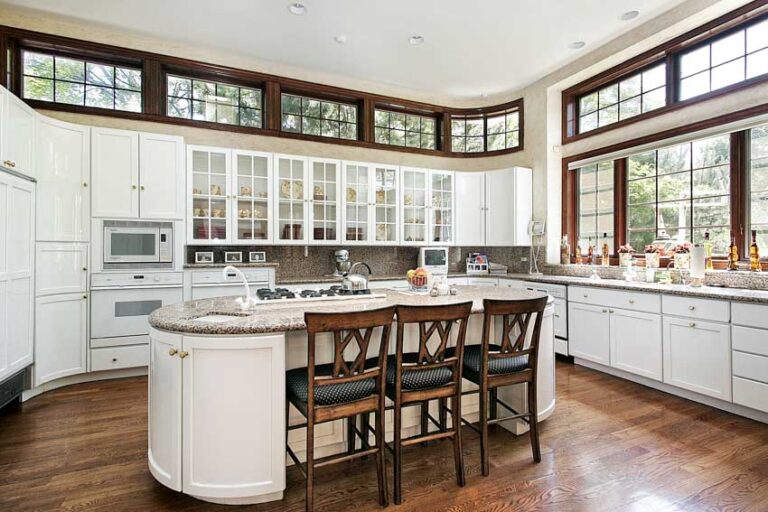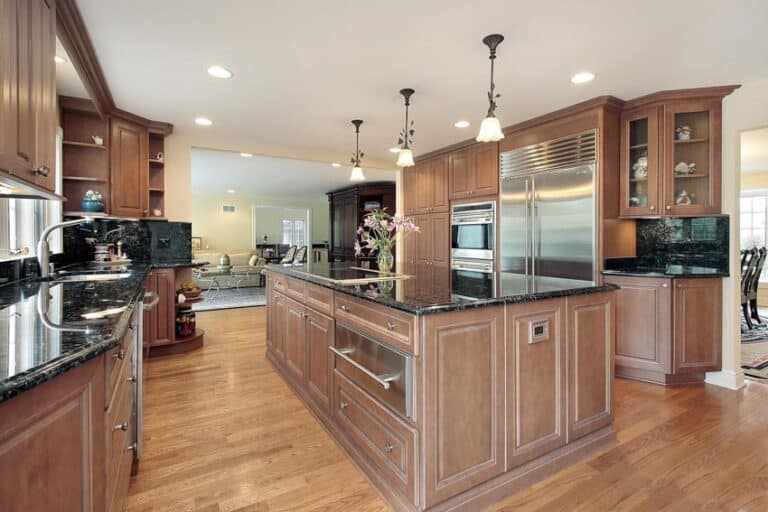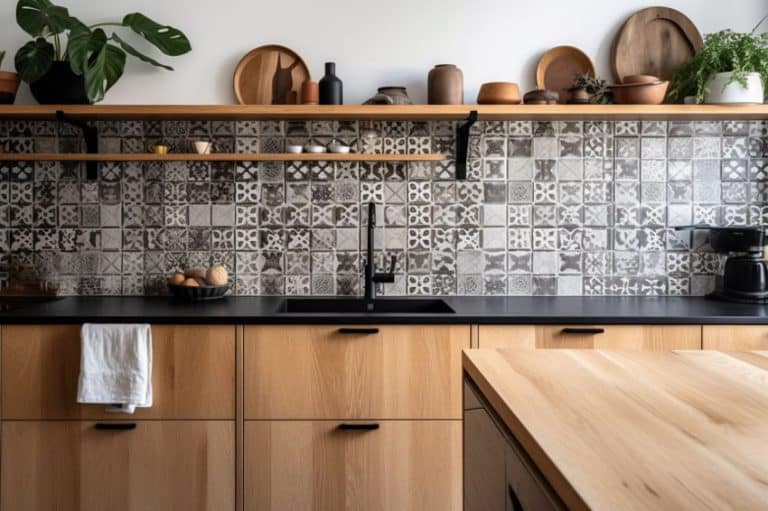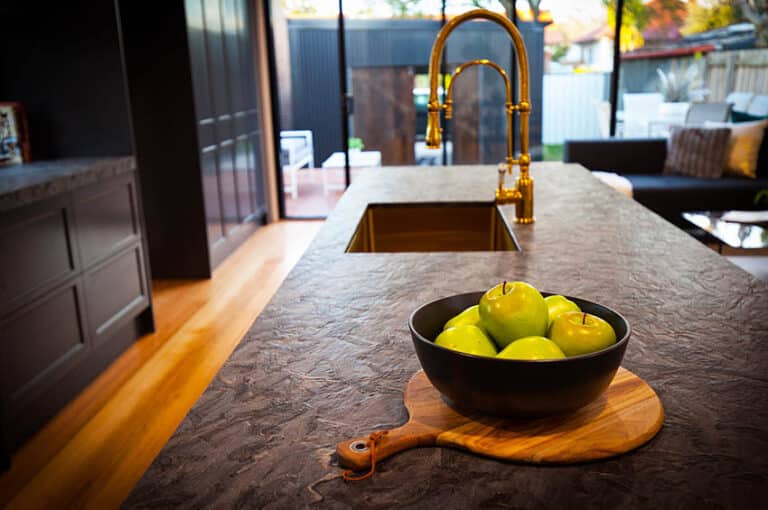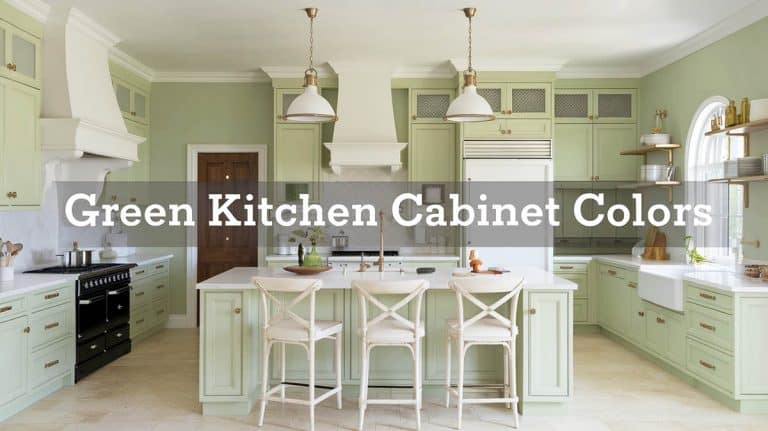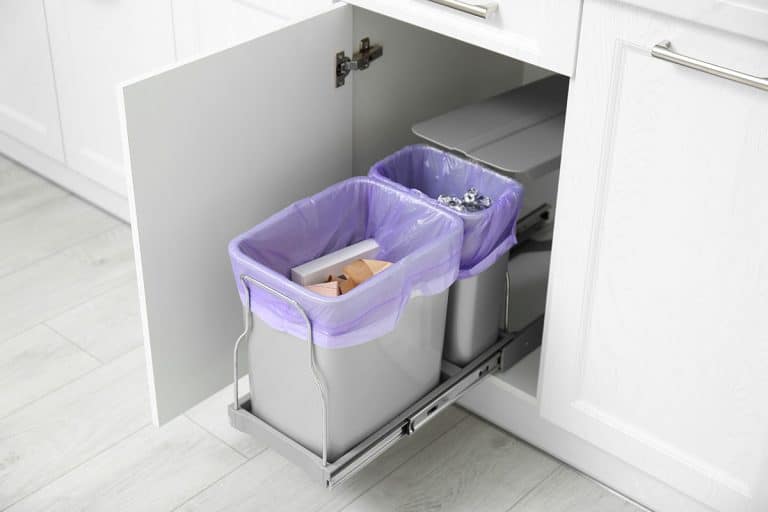Aluminum Countertops Pros and Cons
The kitchen countertop material is one of the most important design decisions you will make for your own home. Stainless steel has always dominated the market scene for metal countertops due to its durability and many other benefits. But with today’s innovations, is aluminum a more affordable material a good choice for countertops?
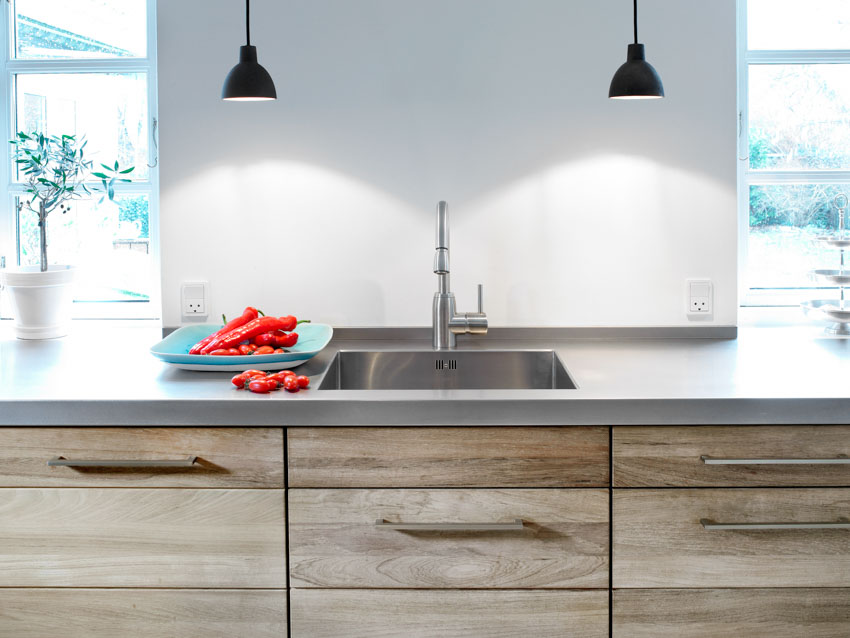
If you’ve been wondering if aluminum is a good choice for countertops for your home, then continue reading. You’ll know the benefits and disadvantages of countertops that are made from aluminum.
Can You Use Aluminum For Countertops?
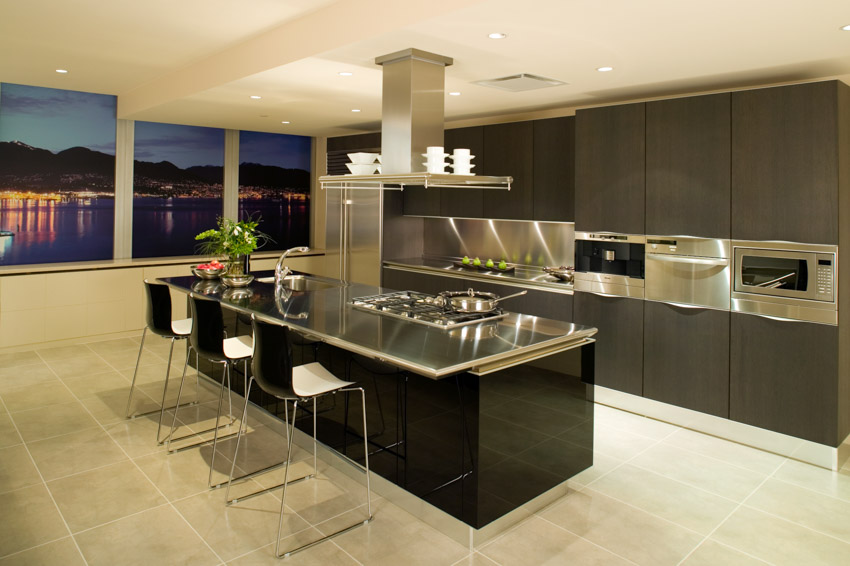
Aluminum countertops may be among the least popular types of metal countertops, but can be used in many installations due to their unique benefits. Other types of metal countertops include copper, pewter, tin, bronze, zinc, and brass.
Aluminum is a versatile material that can create a clean and seamless surface when used on countertops, backsplashes, and sinks. This continuous surface means it does not have grooves or folds where food or dirt can deposit.
Given the pros and cons of aluminum countertops, this material is a practical option that’s highly functional and affordable.
Pros Of Aluminum
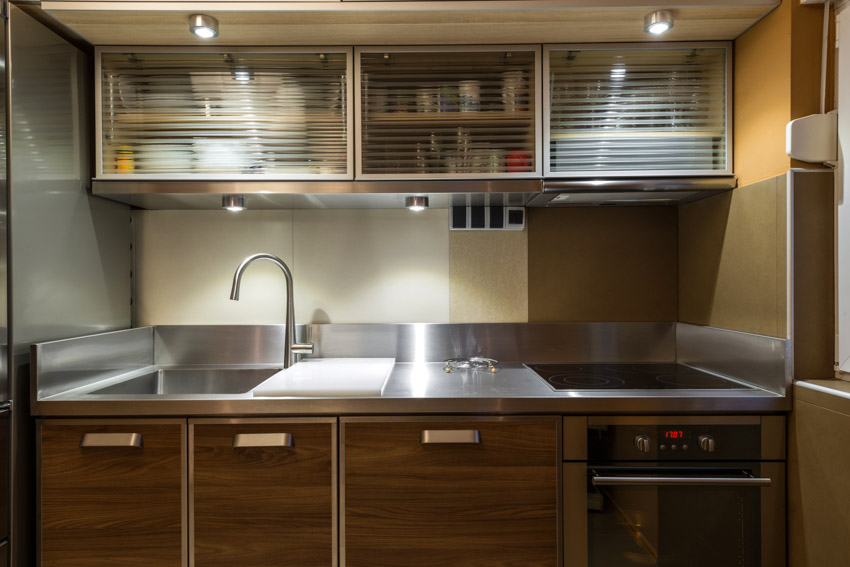
Here we share the advantages of kitchen countertops made from aluminum.
1. Its malleability makes it easy to form and cut, even for complex designs: Aluminum’s excellent workability allows you to create even with challenging kitchen counter layouts or intricate designs for your edge profiles.
2. Being lighter than most countertop materials, it’s easier to transport, install and mold into different designs: Moving heavy and bulky materials can add to the cost and time of constructing a kitchen.
With aluminum types of countertops, you can easily transport and install with a reduced labor force, and along with its malleability, the light material can be easily shaped into any form.
3. It’s generally cheaper to purchase than other countertop materials: Although prices will depend on the added treatments, economic factors, and resources, aluminum is usually cheaper than steel.
4. Its natural aluminum oxide protects the material from rust: Take note that rust is a type of corrosion (the wearing away of metal), and while aluminum does not rust, it does corrode. Even though these terms are frequently used interchangeably, they are basically different.
When aluminum comes into contact with oxygen, it forms an oxide layer, just like any other metal. Unlike other metals like iron or steel, the aluminum-oxide layer is protective.
It’s hard, thin, and transparent, and unlike rust, it’s difficult to remove. Oxidation isn’t a big deal because it’s barely noticeable and actually protects the metal.
5. Recycled aluminum helps reduce harmful impacts to the environment as a recyclable material: As with most metal materials, it can be recycled. The question is, how does it help the environment?
Along with saving energy, using recycled metal countertops is better for the planet. Using recycled material on your countertops uses almost 95% less energy than producing newly manufactured surfaces.
6. Easy to Clean: The sleek finish makes it easy to wipe off dirt, and unlike stone countertops, aluminum is non-porous, preventing food or moisture from seeping through your counter.
7. Best for Modern Kitchens: While stone countertops can be integrated into modern-themed kitchens, the metallic finish can easily create an updated look to your kitchen interior.
8. Recyclable and Reusable: There are manufacturing companies of countertops that use recycled metal in their products.
This can reduce as much as 95% of energy usage in manufacturing with raw materials and lessens 97% of greenhouse gas emissions produced in this initial process. Aluminum countertops are 100% recyclable and reusable.
Cons Of Aluminum
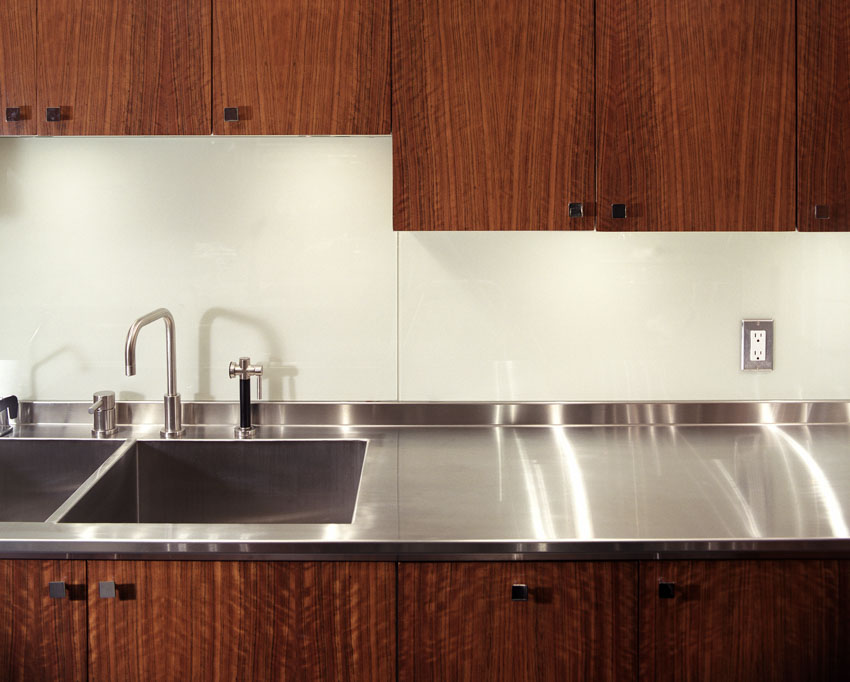
Here, we share the disadvantages of kitchen countertops made from aluminum.
1. Can dent or bend from strong impacts: Probably one of the greatest disadvantages is its susceptibility to denting and bending, counting them out from the most durable kitchen countertops.
Like most other metal materials, it will warp when subjected to heat, making it not an advisable material to use near your cooking area.
There are manufacturers who provide a clear powder-coated finish to increase its durability.
2. Commercial looking: The cold metallic look of aluminum countertops can easily put off homeowners from using the material in their homes.
Although, you can still pull off a modern kitchen that’s fit for a residential kitchen by using other elements to cozy up the look.
3. Can corrode over time: While aluminum does not rust, it can corrode. You can apply a protective coating on your surfaces to prevent corrosion or look for counters with corrosion-resistant aluminum alloy.
4. Harder to weld together: When welding, aluminum-alloys present a number of challenges, including high thermal conductivity.
Because a larger heat input is required, this results in excessive heat dissipation, which can make welding difficult and/or cause unwanted distortion of the parts.
You can use Tungsten inert gas welding method to weld aluminum, especially for thin gauges.
Fewer manufacturers and suppliers: There are a handful of countertop suppliers in most areas, and the countertops usually come with full-frame base cabinets.
These are easily installed and easily moved around, making them advantageous for temporary shelters and mobile homes.
Are Aluminum Surfaces Good For The Kitchen?
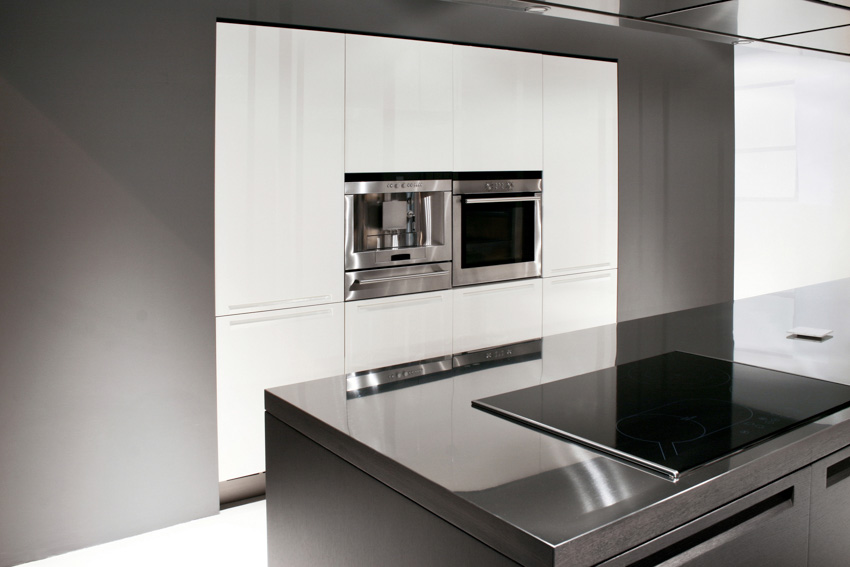
Even with all the pros and cons of aluminum countertops, this is still a great material for the kitchen because it does not rust, is easy to clean, and prevents mold and mildew from forming.
However, deciding to choose a countertop material will depend on your needs. It is a practical choice for non-heavy kitchen use, making it great for residential installations, especially for apartments or small flats.
Mass houses or temporary shelters for construction projects usually use these counters as they are easy to install, more affordable, and can be recycled and reused after their use.
Aluminum Counter Edging
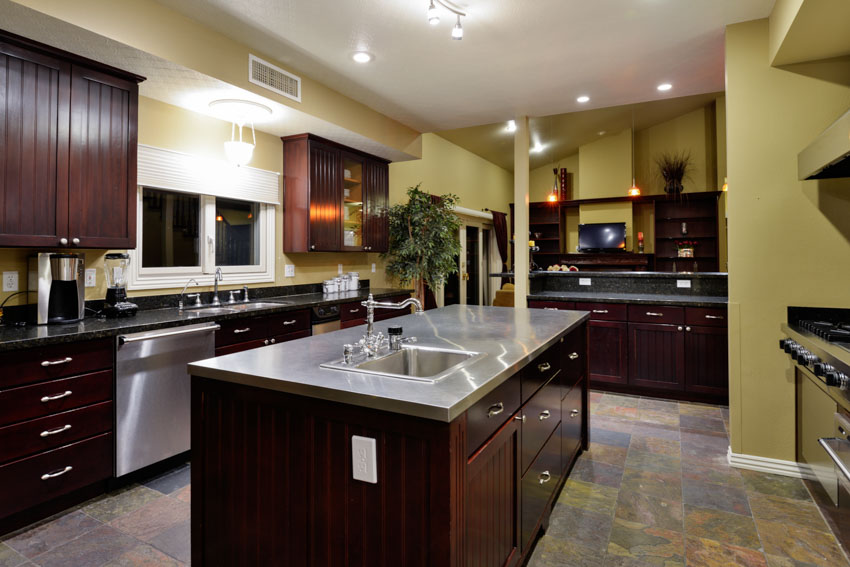
Aluminum, as a countertop edging, is an excellent material because of its resilient and flexible nature, which means it can follow smoother curves as well as straight lines.
The material’s resistance to corrosion means it lasts longer and will never crack or get brittle or rust.
Craftsmen can create intricate designs that are lightweight, so you can install them anywhere, even for tricky kitchen layouts.
What Lasts Longer, Aluminum Or Steel?
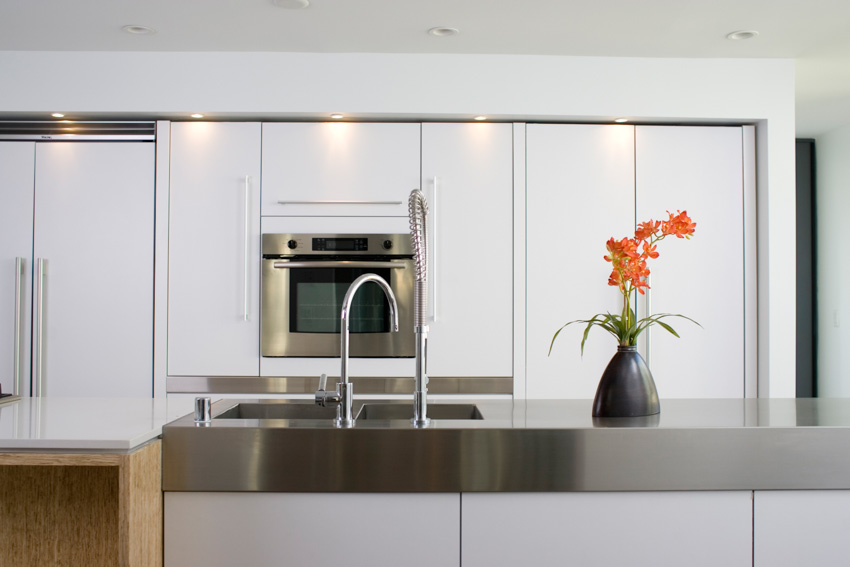
Steel is the undisputed winner when it comes to strength. But even though stainless steel kitchen countertops are stronger, aluminum has a much better strength-to-weight ratio.
And since steel is stronger and more durable than aluminum, it also weighs more than its counterpart.
Steel is basically 250% times denser than aluminum, thus heavier. Its high density/weight makes it less likely for steel to bend under force or heat.
Is Stainless Steel Or Aluminum Easier To Clean?
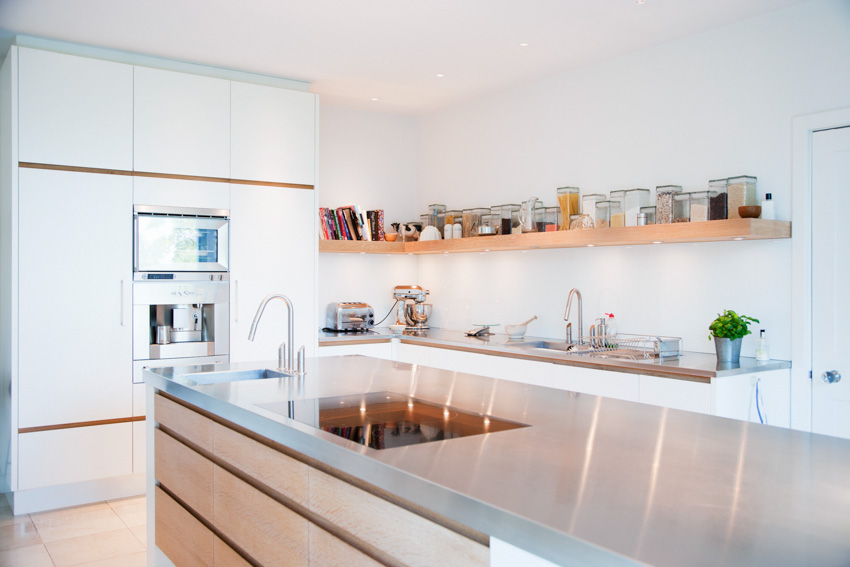
Both steel and aluminum are relatively easy to clean with soap and water, although vinegar and other acidic cleaning agents should be avoided as they can discolor or stain.
The only advantage of stainless steel is that you can use more abrasive cleaning tools without worrying about dents.
Aluminum, meanwhile, while dents can be unavoidable over time, you won’t have problems with rusting or even corrosion, especially when the surface coated properly.
Although it is easy to clean and care for stainless steel, it is known to discolor, become scratched, and develop water spots if not properly cared for before you use either material the first time; you want to make sure that you thoroughly wash them with soapy hot water.
Also, remember that stainless steel is less reactive to foods than other metal countertops, while aluminum reacts with foods, changing their color and flavor.
The debate over whether aluminum or stainless steel is viable for homes boils down to your needs and preferences.
Currently, both metals are perceived to have useful properties when used in the commercial food preparation industry; however, the choice is ultimately a personal one.
See more related content in our article about modern kitchen designs on this page.

